It is time to register! Registration
8:00–12:00 (Boston/New York); 20:00–24:00 (Shanghai/Hong Kong); 21:00–1:00 (Tokyo)
Sunday, 23rd October 2022
Session Introduction
This joint session (1A&1B) will explore the past, present, and prospects of the development of Universal Village (UV), a concept proposed by the MIT UV program that highlights the employment of intelligent technologies to improve the quality of life across the globe. The session will provide a platform to facilitate interdisciplinary dialogues and collaboration on systems thinking for a better future. The topics include the emerging concept models in urban development, quantifiable measures of the built environment, urban analytics based on geospatial big data, and the vision for digital urban transformation.
Session outline
| Time | Presentation | Speaker |
| 8:00-8:10 (Boston)
20:00-20:10 (Shanghai) 21:00-21:10 (Tokyo) |
Welcome and introduction | Yifan Yu
(Professor, Tongji University) |
| 8:10-8:45 (Boston)
20:10-20:45 (Shanghai) 21:10-21:45 (Tokyo) |
Smart Sharing City for Sustainable Society: The Strategies for Integrating Compact and Smart city | Akinori Morimoto
(Professor, Waseda University) |
| 8:45-9:20 (Boston)
20:45-21:20 (Shanghai) 21:45-22:20 (Tokyo) |
[title to be confirmed] | Alain Chiaradia
(Associate Professor, The University of Hong Kong) |
| 9:20-9:55 (Boston)
21:20-21:55 (Shanghai) 22:20-22:55 (Tokyo) |
Behavior and Computation: Future of Urban Mobility | Jinhua Zhao
(Associate Professor, Massachusetts Institute of Technology) |
| Short break | ||
| 10:00-10:35 (Boston)
22:00-22:35 (Shanghai) 23:00-23:35 (Tokyo) |
Big Data Driven Quantitative Urban Analysis: Methods and Practices | Dejing Dou
(Head of Big Data Lab and Business Intelligence Lab, Baidu Research) |
| 10:35-11:10 (Boston)
22:35-23:10 (Shanghai) 23:35-00:10 (Tokyo) |
Children in Urban Settings – Challenges and Way Forward | Thomas George
(Global Lead, Urban, United Nations Children’s Fund) |
| 11:10-11:20 (Boston)
23:10-23:20 (Shanghai) 00:10-00:20 (Tokyo) |
Closing | Yifan Yu
(Professor, Tongji University) |
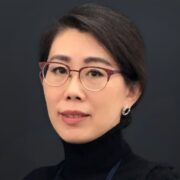
YU Yifan is a professor in Urban Planning Department at Tongji University, where she leads the urban design and urban regeneration research clusters. Her research interests focus on housing, healthy cities and livable environments, urban and community renewal, and housing development and policy. She founded and runs the Age-Friendly Cities Research Centre in Shanghai. She is also the vice president of the Shanghai Urban Planning Association, an expert of the State Council Working Committee on Women and Children, and a member of the Urban-Rural Planning Standardization Technical Committee of the Ministry of Housing and Urban-Rural Development of China.
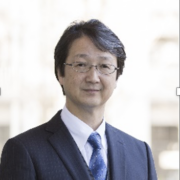
Akinori Morimoto is a professor in city and transportation planning at department of civil and environment engineering at Waseda University since 2014. After graduating from graduate school of Waseda University in 1989, he worked as a research associate for Waseda and Utsunomiya University, as a visiting scholar for MIT and most recently as an associate professor and professor at Utsunomiya University until 2014. He currently serves as President of the City Planning Institute of Japan, managing director in The Japan Research Center for Transport Policy. His academic field is related to the strategies to integrate the land use and transportation toward the sustainable city. He has supervised many projects in national and local government in Japan, and has been invited as a keynote speaker at several international conferences. Recent publications include “City and Transportation Planning; An Integrated Approach” published by Routledge in 2021.
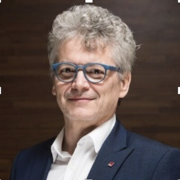
Alain is Deputy Head of Department of Urban Planning and Design, Associate Professor at the University of Hong Kong, Faculty of Architecture. His interests focus on research, applied research and design thinking investigating urban design impacts on liveability, vibrancy and livelihood, wellbeing, and resilience.
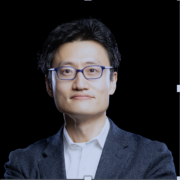
Prof. Jinhua Zhao integrates behavioral and computational thinking to decarbonize the global mobility system. He shapes sustainable travel behavior and designs multimodal mobility system. He runs the JTL Urban Mobility Lab and Transit Lab at MIT and leads long-term research programs with transportation authorities and operators in London, Chicago, Washington D.C., Singapore and Hong Kong. Prof. Zhao sees transportation as a language to describe a person, characterize a city, and understand an institution, and enables cross-culture learning between cities in North America, Asia and Europe. Prof. Zhao is Associate Professor of City and Transportation Planning at MIT. He is the co-founder and chief scientist for TRAM Global, a mobility decarbonization venture. He founded and directs the MIT Mobility Initiative.
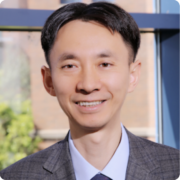
Dejing Dou is the Head of Big Data Lab (BDL) and Business Intelligence Lab (BIL) at Baidu Research. He is also a full Professor (on leave) from the Computer and Information Science Department at the University of Oregon and has led the Advanced Integration and Mining (AIM) Lab since 2005. He has been the Director of the NSF IUCRC Center for Big Learning (CBL) since 2018. He was a visiting associate Professor at Stanford Center for Biomedical Informatics Research during 2012-2013. Prof. Dou received his bachelor degree from Tsinghua University, China in 1996 and his Ph.D. degree from Yale University in 2004. His research areas include artificial intelligence, data mining, data integration, NLP, and health informatics. Dejing Dou has published more than 180 research papers, some of which appear in prestigious conferences and journals like AAAI, IJCAI, ICML, NeurIPS, ICLR, KDD, ICDM, ACL, EMNLP, CVPR, ICCV, CIKM, ISWC, JMLR, TKDD, JIIS, and JoDS, with more than 5500 Google Scholar citations. His DEXA’15 paper received the best paper award. His KDD’07 paper was nominated for the best research paper award. His COLING’18 paper was Area Chair Favorites (excellent). He is on the Editorial Boards of Journal on Data Semantics, Journal of Intelligent Information Systems, and PLOS ONE. He is an Editor-in-Chief of AIMS Electronic Research Archive. He has been serving as program committee members for major international conferences and as program co-chairs for five of them. He has received over $5 million PI research grants from the NSF and the NIH. Dejing Dou is a senior member of AAAI, ACM, and IEEE.
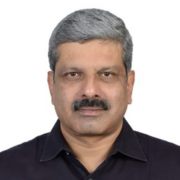
Thomas George is UNICEF’s Global Lead, Urban. He has over 33 years of experience in international development, with 28 years in the United Nations in different countries. He started his career with the Indian Civil Services and is a national of India.
His major responsibilities in UNICEF include:
- Global policy development for children living in urban settings
- Organizational strategy and policy development for urban programming
- Lead and enhance partnerships for children in urban
- Support Regional and Country offices to include an urban lens to programming
Abstracts of the presentations
- Smart Sharing City for Sustainable Society: The Strategies for Integrating Compact and Smart city
Akinori Morimoto (Waseda University)
Compact cities that are friendly to people and the environment have been proposed as one urban model for realizing a sustainable society. On the other hand, the concept of smart city with using “Information and Communication Technology (ICT)” have been emerged and may influence the opposite effect to the compact city which promote smart shrinking from sprawling suburban development. For example, the suburban inhabitant would be able to use resources efficiently and to receive various services at a low cost by ICT.
Therefore, it is important to deliberate the different concepts in terms of city planning. The speech will address the new concept which called “Smart Sharing City” to solve these problems for adopting the management system into the cities. I would like to mention about the integration methods between land use and transportation planning through some case study in Japan.
- [title to be confirmed]
Alain Chiaradia (The University of Hong Kong)
[abstract to be added]
- Behavior and Computation: Future of Urban Mobility
Jinhua Zhao (Massachusetts Institute of Technology)
[abstract to be added]
- Big Data Driven Quantitative Urban Analysis: Methods and Practices
Dejing Dou (Baidu Research)
Cities are complex emergent systems. How to use big data to measure, analyze, and monitor urban livelihoods is a critical issue in promoting the development of sustainable cities. In this talk, we will present our research on utilizing various multi-modal big data to conduct quantitative analysis of a city. Especially, we will give several case studies about how the environmental condition can affect urban livelihoods, such as climate change and air pollution. We will also introduce practical applications in quantitative urban analysis, including building city indexes from different perspectives of urban residents’ happiness, and quantitatively analyzing the development progress of Xiong’an (which is planned to represent China’s vision of future cities).
- Children in Urban Settings – Challenges and Way Forward
Thomas George (United Nations Children’s Fund)
The presentation will focus on children living in urban areas – the magnitude of the issue, the challenges they face and the priority actions needed to address them. The presentation will also focus on children living in slums and informal settlements.


